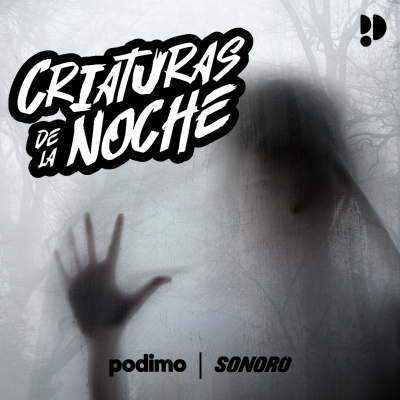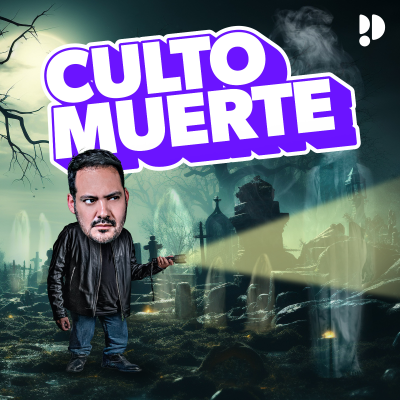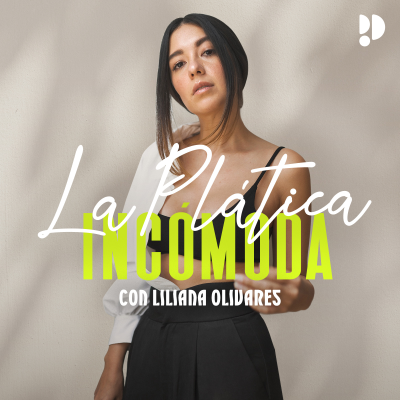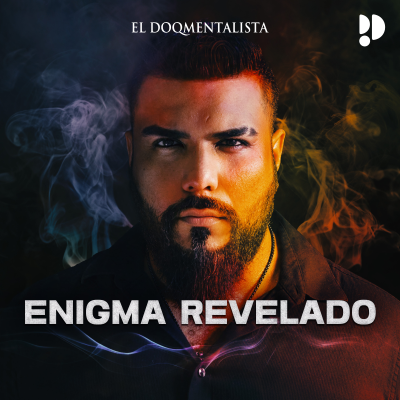
Counting the Earth
English
Technology & science
Limited Offer
2 months for 19 kr.
Then 99 kr. / monthCancel anytime.
- 20 hours of audiobooks / month
- Podcasts only on Podimo
- All free podcasts
About Counting the Earth
Sue Nelson and Alice Hope explore the numbers behind nature and pick apart the jargon and misinformation surrounding climate, the environment and biodiversity. Each month, they start with a number and investigate what it really means. From net zero to hedgerows, worms to water, Sue and Alice aren’t afraid to get their feet muddy in the quest for facts. Producer: Rachael Buchanan A Boffin Media production for the UK Centre for Ecology & Hydrology
All episodes
18 episodes18: Whiplash weather: 90
Let’s talk drought. Yes, that’s right, drought! Our weather is experiencing extremes - from flooding to drought - so Alice and Sue delve into this whiplash weather with UKCEH senior hydrologist Lucy Barker. With the latest Hydrological Summary showing that January has been much wetter than average, they explore whether that is enough to replenish water reserves following the extended drought in 2025. Alice and Sue also catch up with UKCEH micro-meteorologist Dr Jon Evans at a COSMOS-UK field site at Chimney Meadows Nature Reserve in Oxfordshire, one of 39 sites which make up a national soil moisture monitoring network that’s literally out of this world. Soil moisture is just one measure alongside rainfall, river flows, groundwater data that UKCEH gathers in partnership with others to produce monthly hydrological summaries – an essential tool for environmental regulators, government agencies, water companies, researchers and farmers. Hosts: Sue Nelson and Alice Hope Producer: Rachael Buchanan Counting the Earth is a Boffin Media Production for the UK Centre for Ecology & Hydrology. Find out more: Hydrological Summary [https://nrfa.ceh.ac.uk/nhmp/monthly-hydrological-summary-uk] UK Water Resources Portal [https://ukwrp.ceh.ac.uk/] brings together all the data from the Hydrological Summaries – including COSMOS-UK – in near real time. COSMOS UK [https://cosmos.ceh.ac.uk/] Floods and Droughts Research Infrastructure (FDRI) [https://fdri.org.uk/] Water UK’s Waters Worth Saving [https://watersworthsaving.org.uk/] page.
17: The Burning Issue: 3.7 million
Wildfires are evolving. Around the world they are becoming bigger, burning hotter, and harder to control with devastating impacts on humans, the economy and the environment. In this episode, Alice and Sue talk to UKCEH wildfire scientist Dr Douglas Kelley who outlines the causes of this change, drawing on examples from California and the Pantanal, the worlds’ largest tropical wetland. Closer to home, it has been a record year for wildfires in the UK. Alice catches up with Station Commander and Wildfire Tactical Adviser Andy Elliott from Dorset and Wiltshire Fire and Rescue Service. They visit Holt Heath National Nature Reserve in Dorset, the site of a fierce large scale blaze in August. Andy reveals that, due to the fire’s intensity, the lowland heath landscape may take up to 30 years to recover. Hosts: Sue Nelson and Alice Hope Producer: Rachael Buchanan Counting the Earth is a Boffin Media Production for the UK Centre for Ecology & Hydrology. Find out more: UKCEH press release [https://www.ceh.ac.uk/press/climate-change-drove-extreme-wildfire-seasons-across-americas] on the State of Wildfires report. The State of Wildfires project [https://stateofwildfires.com/], including the latest report. The State of Wildfires project is co-led by the UK Centre for Ecology & Hydrology, University of East Anglia, the Met Office and the European Centre for Medium-Range Weather Forecasts. The National Fire Chiefs Council Wildfire Aware [https://nfcc.org.uk/our-services/campaigns/wildfire-aware/wildfire-prevention-advice/] campaign.
16: Encounters of the Invasive Kind: 2,104
What do raccoons, purple pitcher plants, signal crayfish and the yellow-legged hornet all have in common? No, this is not a joke - far from it. They are all on the GB invasive non-native species alert list. The introduction of invasive non-native species is one of the top causes of biodiversity loss worldwide. In this episode Sue and Alice meet up with UKCEH ecologist Professor Helen Roy to delve into the challenges posed by invasive non-native species and explore their environmental, economic, and social impacts. They also catch up with Dr Olaf Booy, Technical Coordinator for the GB Non-native Species Secretariat, part of the Animal and Plant Health Agency, to find out about the work that goes on to identify, detect, monitor and eradicate invasive non-native species. Olaf also spoke about how events such Invasive Species Week (12-18 May) help to raise awareness of the issue and what you can do to help and get involved. Hosts: Sue Nelson and Alice Hope Producer: Rachael Buchanan Counting the Earth is a Boffin Media Production for the UK Centre for Ecology & Hydrology. Find out more: Invasive Species Week [https://www.nonnativespecies.org/what-can-i-do/invasive-species-week] – 12-18 May 2025 Non-native Species Secretariat [https://www.nonnativespecies.org/what-can-i-do/invasive-species-week/events] ID sheets [https://www.nonnativespecies.org/non-native-species/id-sheets] for Invasive Non-native Species Check, Clean, Dry [https://www.nonnativespecies.org/what-can-i-do/check-clean-dry] Be Plant Wise [https://www.nonnativespecies.org/what-can-i-do/be-plant-wise] Record a sighting of an invasive non-native species [https://www.nonnativespecies.org/non-native-species/recording], especially an alert species [https://www.nonnativespecies.org/non-native-species/species-alerts]
15: Resistance Rising: 1.14 million
In this episode, Alice and Sue visit the River Kennet and the Reading Sewage Treatment Works to explore antimicrobial resistance (AMR), a growing global issue. In 2021 1.14 million deaths were attributed to antimicrobial resistant bacterial infections, according to the UN Environment Programme. AMR occurs when bacteria, viruses, fungi, and parasites become resistant to the medicines that are meant to kill or treat them. Microorganisms from our waste, along with chemicals from our homes (like medications, cleaning products, and antifungal shampoos), contribute to this problem when entering our watercourses, along with agricultural and urban runoff. Alice and Sue meet with Dr Holly Tipper and Dr Isobel Stanton, molecular microbiologists at UKCEH, to learn more about their research on AMR, what we know and where the knowledge gaps are and role of the environment in the development of AMR in microbes. Then, they put on boots, hats, Hi-Viz jackets, and goggles to see for themselves the wastewater journey through the treatment works with Dan Freeman, lead for Thames Water’s Chemical Investigation Programme, providing insight into monitoring of emerging contaminants. Hosts: Sue Nelson and Alice Hope Producer: Rachael Buchanan Counting the Earth is a Boffin Media Production for the UK Centre for Ecology & Hydrology. Find out more about AMR research at UKCEH https://www.ceh.ac.uk/news-and-media/blogs/our-research-will-inform-action-tackle-amr-environment-and-risk-human-health [https://www.ceh.ac.uk/news-and-media/blogs/our-research-will-inform-action-tackle-amr-environment-and-risk-human-health] The Naked Scientist podcast on AMR, featuring Dr Andrew Singer from UKCEH https://www.thenakedscientists.com/podcasts/naked-scientists-podcast/amr-unleashed-silent-pandemic [https://www.thenakedscientists.com/podcasts/naked-scientists-podcast/amr-unleashed-silent-pandemic]
14: Top of the crops: 2080
In this episode, Alice and Sue time travel to the year 2080, to explore what crops we might be growing in the UK, after 50 years of a changing climate. They speak with UKCEH Spatial Ecologist Dr John Redhead about horizon- scanning research on how climate change could shape the suitability of crops in the UK and the challenges this brings for UK farming systems. Alice also speaks with Josiah Meldrum from the UK-based wholefoods supplier Hodmedods to explore the benefits of beans and uncover how crops like chickpeas and lentils are already being cultivated in the UK. They also discuss ongoing trials of other crops, which are setting the stage for a more diverse and sustainable agricultural future. Read more about the research in our media release https://www.ceh.ac.uk/press/scientists-predict-what-will-be-top-crops-2080-due-climate-change [https://www.ceh.ac.uk/press/scientists-predict-what-will-be-top-crops-2080-due-climate-change] and the paper in Environmental Resilience and Sustainability https://doi.org/10.1002/cli2.70007 [https://doi.org/10.1002/cli2.70007] [https://doi.org/10.1002/cli2.70007]
Choose your subscription
Limited Offer
Premium
20 hours of audiobooks
Podcasts only on Podimo
All free podcasts
Cancel anytime
2 months for 19 kr.
Then 99 kr. / month
Premium Plus
Unlimited audiobooks
Podcasts only on Podimo
All free podcasts
Cancel anytime
Start 7 days free trial
Then 129 kr. / month
2 months for 19 kr. Then 99 kr. / month. Cancel anytime.





































